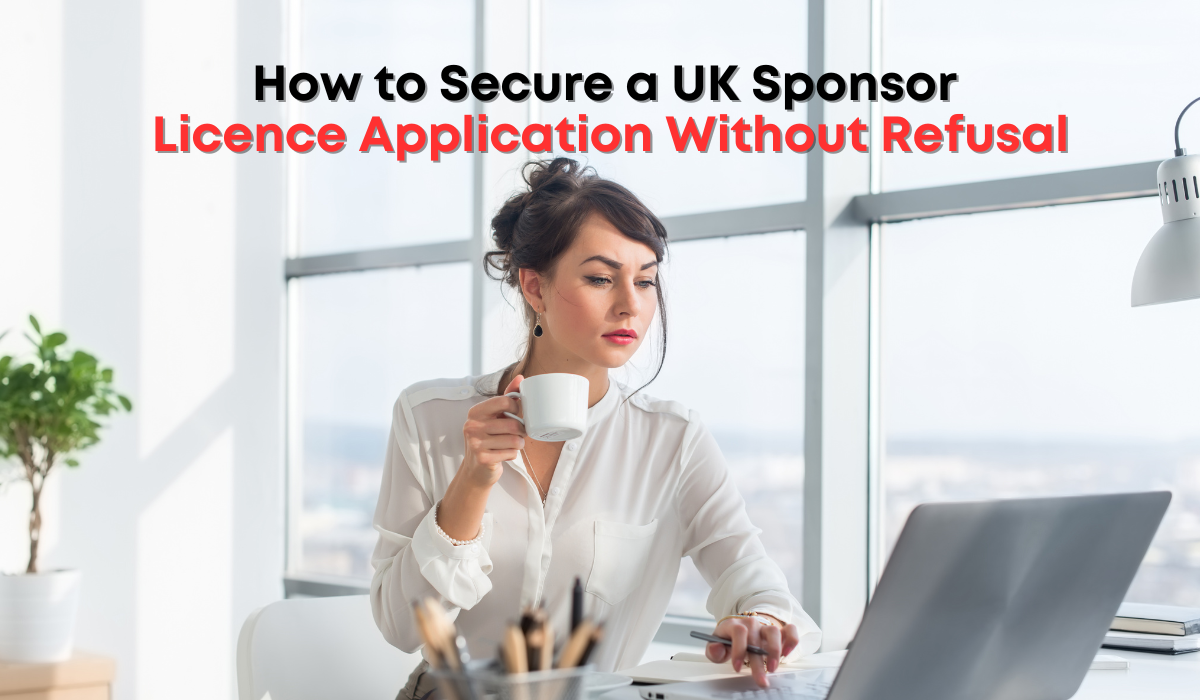In today’s global economy, the ability to recruit skilled overseas workers is essential for many UK businesses. However, recent Home Office statistics reveal a growing challenge: nearly 40% of sponsor licence applications submitted between July and September 2024 were refused. This concerning trend highlights the critical importance of seeking professional legal advice from experienced UK Immigration Lawyers.
A Dramatic Shift in Sponsor Licence Refusal Rates
The Home Office received 8,299 sponsor licence applications during the third quarter of 2024, but 3,245 were refused. This represents a near doubling of the historical refusal rate, which hovered around 20%. For many businesses, this spike in refusals raises serious questions: what has changed, and how can they ensure their applications are successful?
It’s tempting to attribute the surge in refusals to economic pressures, which may have led some companies to forgo legal advice in favour of handling applications internally. But this explanation only scratches the surface. The reality is more nuanced, reflecting a shift in how the Home Office evaluates applications.
Why Are Sponsor Licence Applications Being Refused?
Historically, if an applicant’s paperwork was adequate, a licence was granted. Those days are over. Now, the Home Office demands a flawless application, backed by robust evidence that businesses have systems in place to manage their licence effectively. Simply put, applicants can no longer rely on the assumption that they can “learn on the job.”
This heightened scrutiny may stem from the government’s broader goal of reducing net migration. There’s also increased vigilance in sectors such as adult care and hospitality, where exploitation risks are perceived to be higher. Businesses must now demonstrate that they have the infrastructure and expertise to comply with the complex sponsorship rules.
The Consequences of a Sponsor Licence Refusal
A refusal isn’t just a minor setback—it can be devastating. Without a sponsor licence, businesses cannot sponsor overseas workers on Skilled Worker Visas or Health and Care Worker Visas. What’s worse, a refusal triggers a six-month cooling-off period before the company can reapply, further delaying critical recruitment efforts.
During this time, competitors who successfully secured their licences may have already recruited top talent, giving them a significant advantage in the market. Moreover, the Home Office is stepping up its enforcement efforts, as evidenced by the alarming rise in licence suspensions and revocations.
Compliance Action: The Numbers Don’t Lie
The statistics paint a stark picture of the Home Office’s tougher stance on compliance:
- 513 sponsor licences were revoked in Q3 2024, a nearly 700% increase compared to Q3 2023.
- 509 licences were suspended, reflecting a 450% year-on-year increase.
These figures should serve as a wake-up call for businesses. Even after securing a sponsor licence, companies must remain vigilant. Non-compliance can lead to severe penalties, including hefty fines and reputational damage.
What Businesses Can Do to Avoid Refusal or Compliance Issues
The message from the government is clear: sponsor licence holders cannot afford to be complacent. Here’s how businesses can safeguard their operations:
- Pre-Application Preparation:
Work with a specialist immigration solicitor to ensure your application is robust and error-free. Pre-application advice can identify potential weaknesses and help you submit a strong case. - Sponsor Licence Management Services:
Outsource the management of your licence to experts who can handle the technical details, allowing your HR team to focus on core responsibilities. - Immigration Law Training:
Equip your key personnel with up-to-date knowledge of the sponsorship rules. This training can be invaluable, especially for businesses in high-risk sectors. - Compliance Audits:
Regular audits can help identify and address potential compliance issues before the Home Office steps in. Proactive measures are essential to avoid the risk of suspension or revocation.
Final Thoughts: A Call to Action for UK Businesses
The rise in sponsor licence refusals and compliance action underscores the importance of professional legal advice. With the Home Office adopting a zero-tolerance approach, businesses must ensure their applications and ongoing compliance meet the highest standards.
At a time when skilled overseas workers are crucial to business success, the stakes have never been higher. Investing in expert legal guidance isn’t just a precaution—it’s a necessity. For advice on sponsor licences and immigration compliance, contact our experienced Immigration Solicitors in London today.
Get in touch: For a comprehensive understanding of your options or queries on UK immigration matters, contact GigaLegal Solicitors at 02074067654 or click here to book a no-obligation consultation with an immigration expert.


